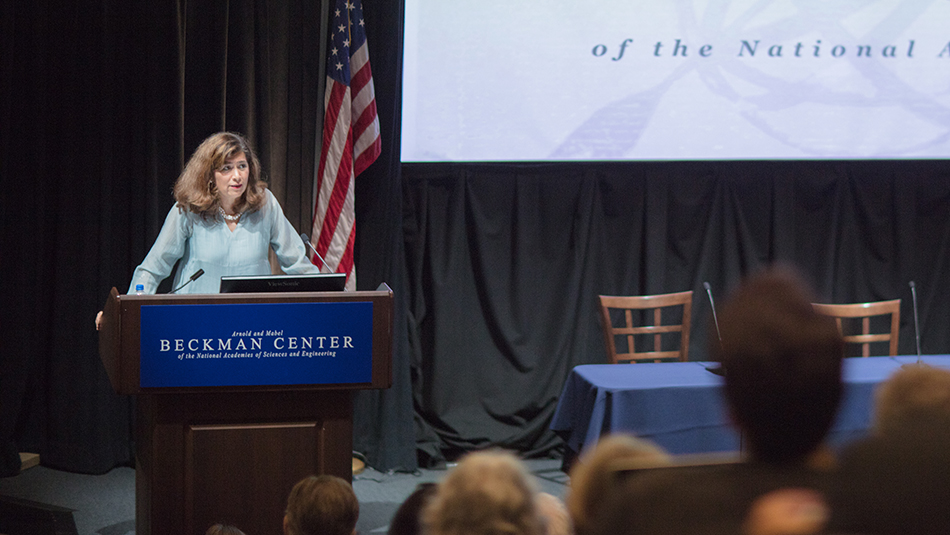
Keynote speaker Gabriela Ramos, New Approches to Economic Challenges.
The “Economic Transition in the Anthropocene: Ensuring a Just and Sustainable Future for Humanity” conference that was held in April at UC Irvine explored questions related to power, fairness, nature and human well-being.
Watch the highlights in this video:
The conference, through panel discussions and keynote addresses, delved into today’s political economy and its role in shaping the anthropocene and the future of life on Earth.
“The overall purpose of the entire program was: ‘ensuring a just and sustainable future for humanity,’ ” says John Whiteley, professor of social ecology, who organized the conference. “The reason the program expanded to an evening and two days was the complexity and the urgency of first presenting clashing ecosystems, financial crises and global uncertainties in a lens of identifying answers to the compelling question: where do we go from here?”
From the conference program:
“We are in a period of systemic upheaval. For the first time in the evolution of life on Earth, human dominance of the planet’s biological, chemical and geological processes is seriously disrupting our critical life support systems. Profoundly related to this, the economic orthodoxy that has dominated western politics and culture for the past 40 years is rapidly losing legitimacy. In the face of multiple crises — environmental breakdown, increased inequality of income and opportunity, growing political polarization — the ideas and assumptions behind today’s economic theory fail to adequately explain or fix what is going so wrong.
“Political economic paradigms do not last forever. The evident failings of mainstream economic theory, together with our growing understanding of the economy as complex, dynamic, embedded in natural environments, and deeply influenced by human history, cultures, values and behavior, suggest that the conditions for a new and better understanding of the economy are beginning to emerge. To create the space for transition, we must go beyond debates focused on incremental policy change and develop a better analysis of our economic system as it is and not as we might like it to be.”